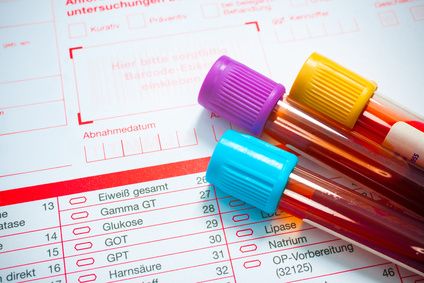Arthritis (ICD code: M13) is an inflammation of the joints. If only one joint is affected by arthritis, it is called monarthritis. If many joints are affected, the technical term is polyarthritis.
The following symptoms can occur with joint inflammation:
- Swelling
- Pain,
- Movement restrictions,
In addition, there may also be a perceptible overheating of the skin especially when
is affected.
Affected people often also suffer from a general feeling of illness and severe malaise. In children, for example, a lack of playfulness could be an alarm signal.

Rheumatism can cause arthritis. This is known as rheumatoid arthritis © narstudio | AdobeStock
Arthritis is different to arthrosis: Despite the fact that they are similar terms, they are completely different diseases, even though both lead to joint pain. Arthrosis (also known as osteoarthritis) refers to the wear and tear of cartilage in the joint. The causes, progression and treatment are usually quite different.
Germs can cause bacterial and purulent joint inflammation. They can get into the joint
- through operations,
- after injections or
- after injuries.
This form of joint inflammation must be treated immediately, as in extreme cases it leads to sepsis (blood poisoning). This can become life-threatening under certain circumstances.
Watch the video to see how the cartilage and bones of a joint are damaged by inflammation:
Other forms of arthritis are caused by rheumatism or metabolic diseases. For gout the urea metabolism is disturbed. In the course of this disease, there are repeated episodes in which the joints become very swollen and painful.
Also psoriasis can lead to arthritis. However, diagnosis is very difficult here, as the joints can be affected long before the external signs appear on the skin.
There are also special forms of arthritis. These include Lyme arthritis, which is caused by Lyme borreliosis, also known as Lyme disease. Also rare is reactive arthritis also known as Reiter's syndrome. It is caused by a bacterial infection
- in the gastrointestinal tract,
- the urinary tract or
- the sexual organs.
Because of the many causes of joint inflammation, it is important to get to the bottom of them. Only careful treatment of the causes can successfully combat arthritis.
In the case of bacterial arthritis, the doctor must know exactly which germs have triggered the inflammation. A cannulation is recommended for this. Here, the doctor takes samples from the inflamed tissue. In this way, the germs can be identified and the administration of medication can be adjusted accordingly.
If rheumatoid arthritis is suspected, X-rays can show the inflammation in the area of the joints. Blood values can also provide a clue in the best case. However, the values may not give an exact indication of the cause.
The inflammation values themselves – such as the leucocytes or the CRP (C-reactive protein) – on the other hand, are quite easy to recognise.

© Alexander Raths / Fotolia
The correct treatment depends on the causes and complaints caused by the disease. In the acute stage, elevating and cooling can provide a little pain relief. If the pain becomes too great, medication can be administered.
The doctor may prescribe non-steroidal anti-inflammatory drugs (NSAIDs). These use diclofenac or ibuprofen, among others, as the active ingredient. Sometimes the administration of cortisone is also recommended. If bacteria are the cause, the patient is given antibiotics.
In some cases, the body fights "against itself" and thus promotes inflammation. In this case, medicines that suppress the patient's own immune system are also necessary.
Irrigation of the joint several times may also be indicated. Depending on the extent of the inflammation, irrigation must be performed several times – possibly arthroscopically every two days.
Physiotherapy may be necessary if the symptoms result in restricted movement or even joint stiffness.
If the joint and its structures are too badly damaged, an artificial joint may need to be inserted.
Diet plays a major role in gout or rheumatoid arthritis as a cause. With the right nutrition, even medicines can become superfluous.
If you suffer from gout, you should largely avoid foods with purine. This lowers the value of uric acid. Specialists will help you put together what is known as a "gout diet".


























